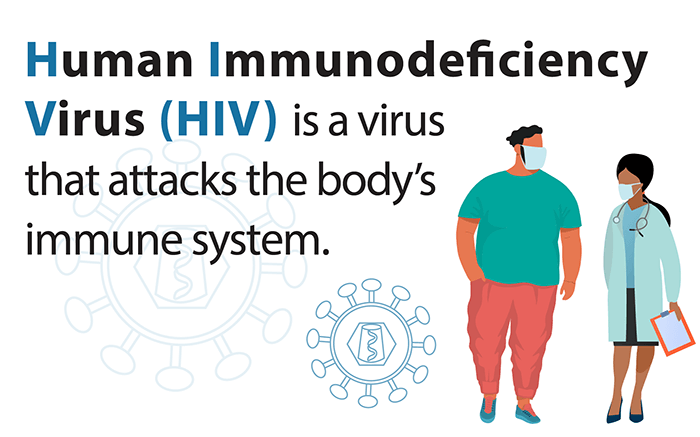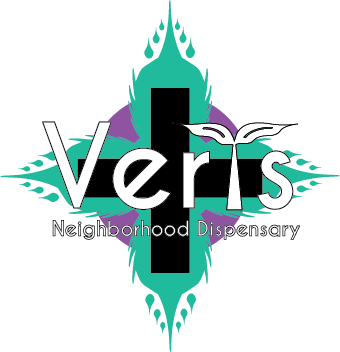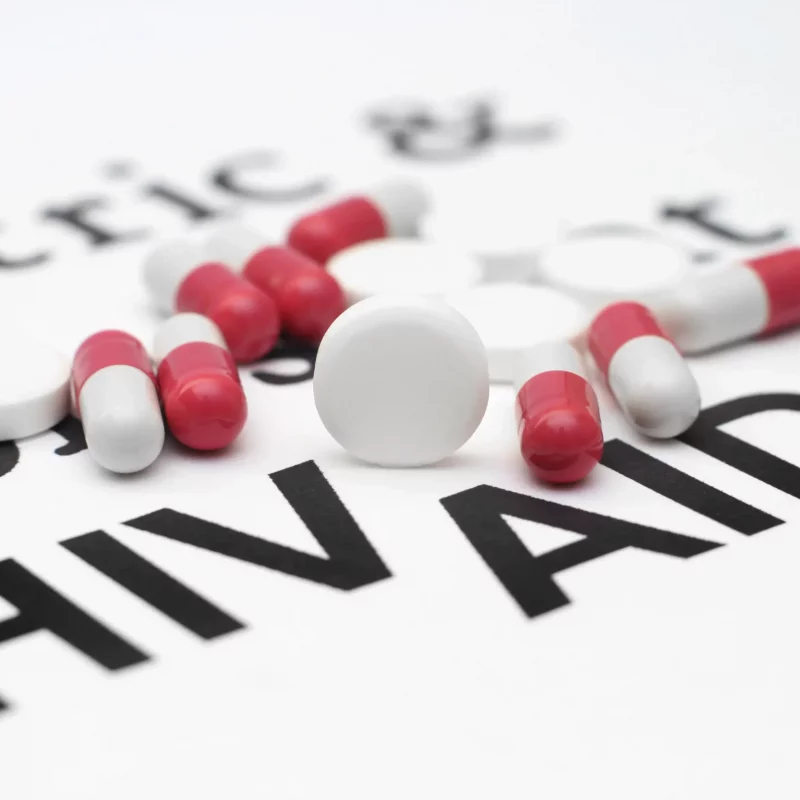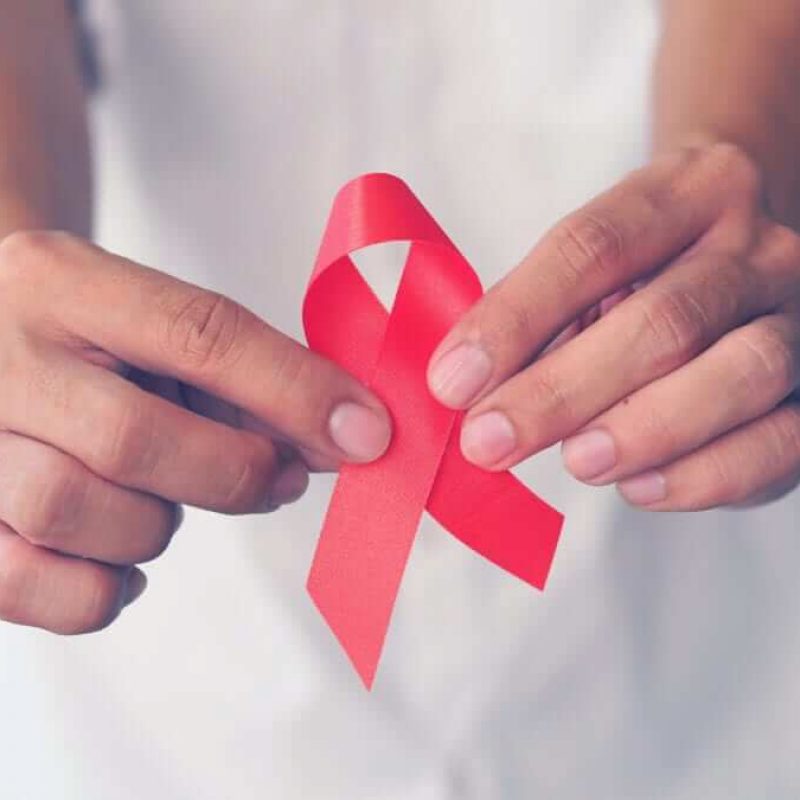When the HIV/AIDS epidemic first swept the world in the 1980s, it sent a panic across the globe. Suddenly, we had this new disease that was killing people in droves, and yet there was little insight about where it came from or how it got so bad without being noticed sooner. People were coming down with some type of immunodeficiency that couldn’t be explained, at least not at first. It was aptly named Human Immunodeficiency Virus and was linked as the precursor of AIDS (Acquired Immune Deficiency Syndrome).
Currently, there is still no cure for HIV or AIDS, but treatments have advanced significantly in the past four decades and gotten to a point where many people are comfortably living with HIV and even some who are completely undetectable (where viral loads are so low that the virus is not detectable and rarely transmittable) thanks to a proper medication regimen and early detection.
For some, cannabis has become a part of their HIV/AIDS treatment regimen, and it has shown to produce a variety of benefits and results for people with varying degrees of these two conditions. In many instances, cannabis is used to treat complications of the disease, including everything from the side effects of antiretroviral drug treatments to HIV wasting syndrome.
Here’s what you need to know.
Is Marijuana Good for HIV?
While there are several newer drugs and treatment regimens that are changing the way people look at HIV and AIDS, marijuana remains a tried-and-true choice for people who are looking to alleviate nausea and weight loss, pain and inflammation, and even the depression and anxiety that can come with an HIV diagnosis.
With the exception of vulnerable patients, many people will see more benefits than not when they utilize marijuana in a medical capacity to assist with symptoms, side effects, and other HIV-related issues.

Does HIV Qualify for Medical Marijuana?
Almost every state that has legalized medical marijuana also has HIV/AIDS listed on the qualifying conditions. This is because it does not have a cure and is still considered a “terminal illness” to some degree. It’s also because the use of medical marijuana has been proven effective in treating things like appetite issues, weight loss, and the wasting syndrome that is often associated with HIV.
In order to find out if your HIV diagnosis qualifies you as a medical marijuana patient, you will have to check with your state to get a list of qualifying conditions and then find out how you can get approved for a medical card. Just having HIV and purchasing and using cannabis illegally or recreationally is not enough in many states—medical recognition is required. Medical cards also often provide access to better-quality products because they are designed for medicinal use and not just for that recreational “high” that people seek from using cannabis for relaxation or fun.
Can You Get Medical Marijuana for HIV?
Once you determine whether your state offers medical marijuana and if HIV is on the list of conditions that qualify, you’ll need to go through the process of applying for a medical marijuana card. This usually requires proof of a diagnosis along with a referral from a licensed provider in the state, as well as registration with the appropriate state department and the payment of a registration fee.
In states where medical marijuana is not legal, it will not be possible to get a recommendation for HIV or any other condition. It may also be difficult to get a recommendation from traditional doctors because marijuana is still illegal at the federal level. For the same reason, you can’t get health insurance to pay for any medical cannabis that you wish to use for HIV or any other condition. You’ll have to pay out-of-pocket for this “medication” until or unless federal laws change and change the status of health insurance coverage.
How Does CBD Help with HIV Symptoms?
While there are various effects from the THC and CBD content of various marijuana products, CBD is often preferred because it gives people the benefits without that “high” feeling. Some patients do prefer the higher THC content that offers a more sedative effect with higher pain relief effectiveness, as well.
Medical cannabis added to an HIV or AIDS treatment plan increases people’s likelihood to continue with their conventional treatment by more than three times. It can offer relief from:
- Nausea
- Vomiting
- Appetite loss
- Headaches
- Inflammation and pain
Studies are also showing that cannabis can inhibit the virus as it’s replicating in the body, perhaps stopping HIV and conditions like cancer in their tracks with future improvements and studies. For now, though, it makes a great solution for people who feel like they have no other options for relief or who want a more natural solution.
Side Effects of Marijuana for HIV/AIDS
There are very few side effects associated with the use of marijuana. Some people don’t like the “high” feeling that comes from THC-based marijuana products. For them, CBD products are available that offer many of the same pain relief, nausea relief, and emotional support benefits without that high. Aside from people who consume too much or have the very rare adverse reaction, there are no real side effects associated with medical marijuana for HIV/AIDS.
Best Strains of Marijuana for HIV/AIDS Patients
Everyone will have their own favorites and it will likely take you some trial and error before you find the ones that you like best. However, some of the top marijuana strains for HIV/AIDS patients include:
- Girl Scout Cookies – Euphoria and Relaxation
- Blue Dream – Pain Relief and Mood Increase
- Cheese – Appetite Stimulant, Pain Relief, Nausea Relief, Mood Increase
- Fruit Punch – Depression Relief, Stress Relief, Anxiety Relief
- MK Ultra – Stress Relief, Sleep Support, Pain Relief
You’ll want to check out the different effects of the strains that you try and like so that you know what you’re looking for.
Can You Get a Medical Card for HIV?
As mentioned, medical marijuana is legal in more than 20 states throughout the United States, and HIV/AIDS is on almost every state’s list of qualifying medical conditions. If you can obtain your diagnosis or medical records and visit a licensed provider, you can get a recommendation approval for medical marijuana for HIV/AIDS. Then, you simply register and pay the fee, and you will be able to visit local dispensaries to purchase medical marijuana products that you want to use.
Depending on where you live, your card will entitle you to a specific amount of marijuana during what’s known as a fill period. Most states have a 30-day fill period. Others use a 45- or 90-day period, and limit the quantity that people are allowed to purchase. For example, Missouri residents are allowed to purchase up to four ounces of the dried flower or 32 grams of prepared cannabis products (concentrates, vape cartridges, etc.). Some states may also have exceptions for certain conditions or needs, so be sure to read up on the laws.
Find HIV/AIDS Medical Marijuana Dispensary
Now that you know all about marijuana for HIV/AIDs and how you can get medically qualified in your state, you can search for your local medical marijuana dispensary online or ask your provider for a list of dispensaries when they give you the recommendation for the medical card in the first place. Make sure that you choose licensed dispensaries that are allowed to operate within your state so that you can legally benefit from medical marijuana and all that it can do for HIV, AIDS, and their related symptoms and issues.
Company
Shopping
Verts Neighborhood Dispensary 2024 | All Rights Reserved


